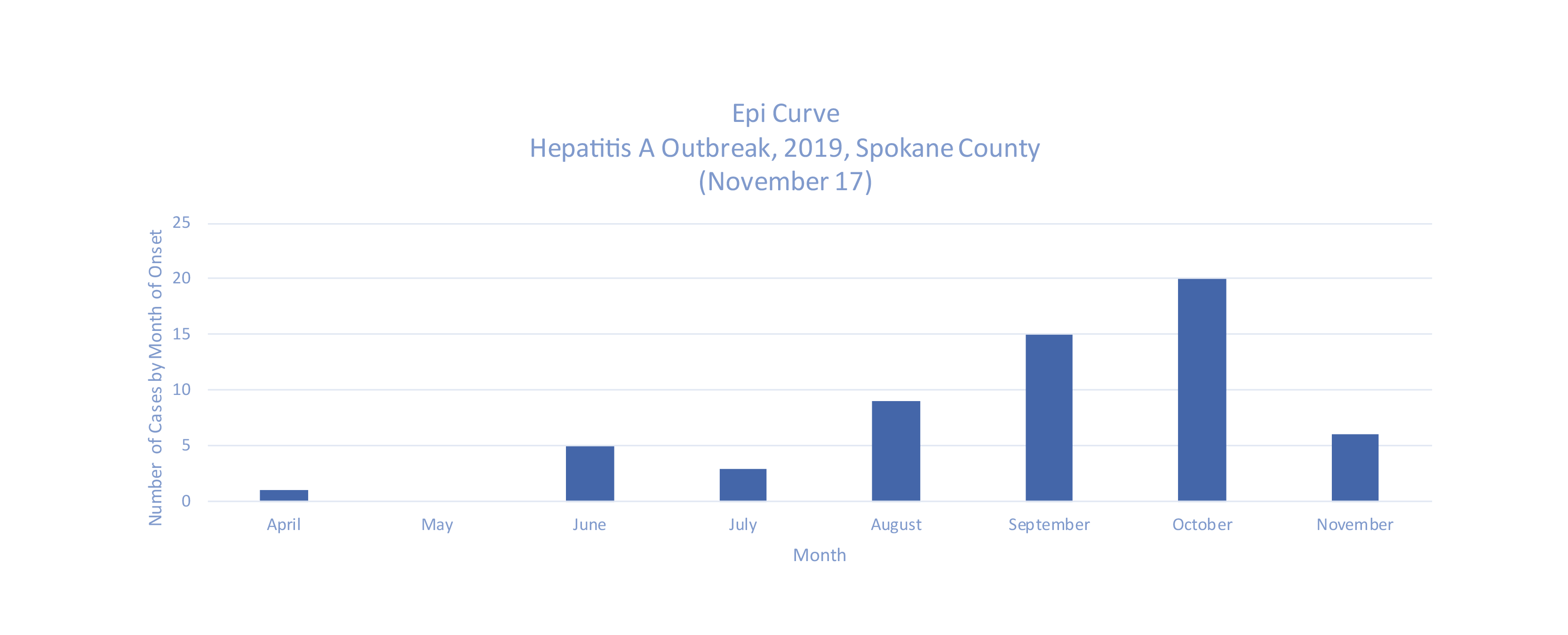
Hepatitis A Outbreak Continues Into Fall
By Anna Halloran, Epidemiologist, Spokane Regional Health District
Spokane County’s hepatitis A outbreak, which began in June 2019, continues to advance with new cases diagnosed every week. Primarily affecting people experiencing homelessness and/or substance abuse, 59 cases were reported as of November 17, 2019 with a 69 percent hospitalization rate and a median length of hospital stay of four days. Potentially contributing to the high hospitalization rate, at least 35 percent of cases had evidence of chronic viral hepatitis co-infection with hepatitis B and/or hepatitis C. At least 86 percent had known risk factors of homelessness and/or substance abuse.
Please continue to consider hepatitis A in anyone with jaundice and clinically compatible symptoms including fatigue, abdominal pain, nausea, vomiting, loss of appetite, dark urine, clay-colored stools, fever, headache, and joint pain. Ensure all suspected or confirmed cases of hepatitis A are reported to SRHD Epidemiology (509.324.1442) within 24 hours. During an outbreak, suspect cases are reportable. Please also consider asking patients for named close contacts during their contagious period (two weeks prior to onset of jaundice and one week after) to assist in public health intervention. Many hepatitis A cases have been difficult to locate or uncooperative once they have been discharged from medical care. All close contacts to hepatitis A cases should receive single antigen hepatitis A vaccine as soon as possible and within two weeks after exposure.
Outbreak-specific considerations for hepatitis A vaccine administration:
Vaccination of susceptible individuals has been shown to successfully control outbreaks of hepatitis A. Both single antigen hepatitis A vaccine (HAVRIX® or VAQTA®) and combination hepatitis A/hepatitis B vaccine (TWINRIX®) are up to 95 percent effective for hepatitis A after even just one dose. In addition to routine childhood and travel-related vaccination, the Advisory Committee on Immunization Practices (ACIP) recommends anyone at risk for the disease be vaccinated, including people who are experiencing homelessness, people who use illegal drugs, and men who have sex with men. Our outbreak, like others across the nation, is due to high numbers of susceptible individuals living in situations that facilitate person-to-person transmission such as lack of access to sanitation and crowded living conditions. Please consider vaccinating your susceptible and at-risk patients for hepatitis A, regardless of the reason they present for care.

Photo credit: Maureen Barlin, Homeless

